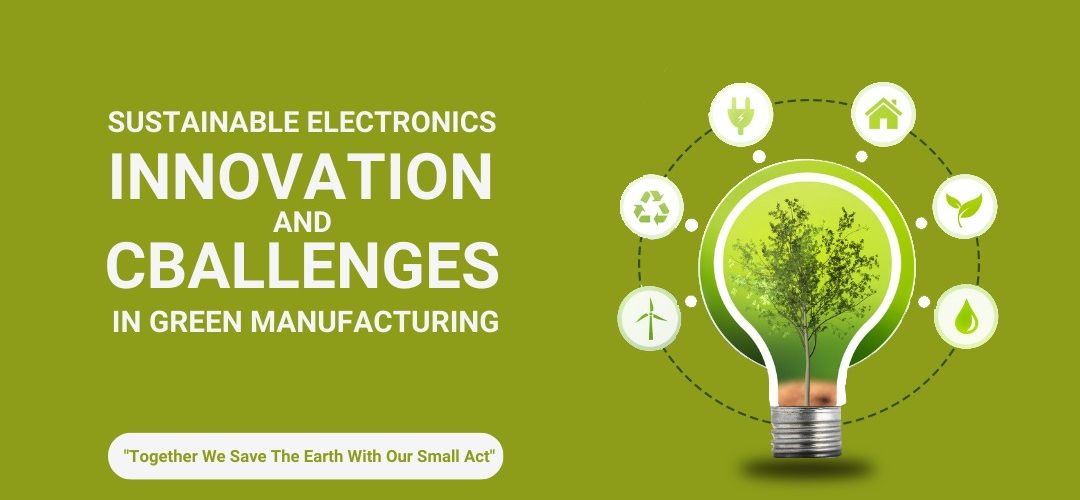In a rapidly changing world, the electronics industry is at the cusp of a remarkable transformation – one driven by an urgent need for sustainability. As global greenhouse gas emissions continue to rise, and concerns over energy stability grow, the electronics sector, responsible for 4% of these emissions, is poised for a revolution. The quest for eco-friendliness and the drive to counter unpredictable energy costs have ignited a surge of innovation, shaping the landscape of electronics manufacturing.
The Shift towards Sustainability
At the heart of this revolution is the pursuit of sustainability, a goal that has gained momentum through governmental directives and eco-conscious investments. Today, businesses navigating the complex labyrinth of environmental regulations are not only safeguarding the planet but also charting a course toward enduring prosperity. What was once viewed as a compliance burden has morphed into a beacon of opportunity. Embracing low-emission production processes, or implementing strategies for material recycling and recovery, can translate into smart financial decisions. By cutting down energy consumption, waste management costs, and superfluous procedures, companies are not only future-proofing against stringent regulations but also positioning themselves to capitalize on the burgeoning trend of Environmental, Social, and Governance (ESG) investments.
The Rise of Intelligent Manufacturing
In the realm of sustainable electronics manufacturing, innovation knows no bounds. The integration of artificial intelligence and the Internet of Things (IoT) is redefining efficiency, waste reduction, and cost-effectiveness. Intelligent digital manufacturing techniques are automating operations, while sensor technology is pinpointing leaks and improper material usage, streamlining processes and reducing waste. Faced with growing pressure from consumers and governments alike, the electronics industry must break free from conventional practices contributing to climate change. The shift towards low-toxicity, low-emission chemicals and processes stands as a watershed challenge, especially as the race to achieve net-zero goals gains momentum. Moreover, the impending specter of rising carbon prices underscores the urgency of adopting renewable energy sources.
Mitigating the Carbon Footprint
Tackling the carbon footprint of the electronics industry is no small feat, especially for established manufacturers entrenched in traditional methodologies. As governments tighten the reins on emissions, and public scrutiny magnifies, manufacturers must take on greater accountability. Switching to renewable energy sources, while initially costly, promises long-term benefits as technology continues to advance and costs decline. The allure of affordable, sustainable energy is compelling. Moreover, a growing market for recycled materials is paving the way for a circular economy, wherein discarded electronics can find new life as valuable resources. Innovative designs that prioritize sustainability might add to product costs, but in an era where eco-conscious consumers wield substantial influence, the investment can be a strategic differentiator.
Challenges and the Path Forward
Yet, the road to sustainable electronics manufacturing is not without its challenges. The industry’s substantial carbon footprint demands a holistic transformation that extends beyond isolated efforts. While renewable energy adoption is gaining momentum, it necessitates significant upfront investments that can deter some manufacturers. The transition to efficient manufacturing processes, although ultimately rewarding, can also disrupt established workflows. The quest for quality recycled materials, meeting the rigorous demands of electronics production, remains an ongoing challenge. Designing products with sustainability as a focal point can potentially increase production costs, posing a conundrum for manufacturers striving to balance profitability with planetary responsibility.
The Future Beckons
In the face of these challenges, a remarkable vista of opportunities beckons. The escalating demand for sustainable electronics is driving both consumers and businesses to pivot towards eco-friendly choices. Renewable energy, once a lofty ideal, is rapidly becoming an attainable reality as technology progresses. The surge in recycled materials market promises a greener, more sustainable supply chain. Remarkable technological advances are placing intelligent manufacturing at the industry’s fingertips, poised to revolutionize efficiency and waste reduction. As the pursuit of sustainability unfurls, manufacturers must navigate this transformative landscape with innovation, adaptability, and a steadfast commitment to creating a more sustainable future.
In conclusion, the electronics industry stands at a pivotal crossroads. The drive towards sustainability, fueled by environmental concerns and shifting consumer preferences, is reshaping traditional manufacturing paradigms. The potential rewards are immense – from financial gains to a cleaner planet. The challenges are formidable, yet they are surmountable. As the world hurtles toward an era defined by ecological consciousness, sustainable electronics manufacturing is not merely a trend; it is an imperative, a moral obligation, and a beacon of hope for a brighter future.
ProIndia is a consulting firm that helps businesses and organizations achieve their sustainability goals. They offer a variety of services, including:
- EPR audit and compliance: ProIndia can help businesses to comply with the Extended Producer Responsibility (EPR) regulations in India by quick and smooth transfer of credits.
- ESG consulting: ProIndia can help businesses to develop and implement ESG (Environmental, Social, and Governance) strategies.
- Social impact: ProIndia works with businesses and organizations to create social impact through their sustainability initiatives.
Blog by: Rig pathak
PRO India



